Featured image by Jorge Urosa on Pexels.
I am often asked by medical students and doctors about my involvement in advocacy (I think in this case, most people mean advocacy in terms of lobbying and campaigning at governmental and international levels) – a question that has led me to reflect on my own journey. In truth, I found myself woven into the narrative before I even realised I had embarked upon it, much like falling in love – where does one truly begin? Trying to deconstruct my journey into practical insights for you is much like trying to deconstruct a well-crafted cocktail. On reflection, I believe that at the heart of every successful advocate, is the unwavering passion to make things work, and the desire to make change which had begun many years before their so-called overnight success.
(Image: 2023 Women Deliver, Kigali, Rwanda)
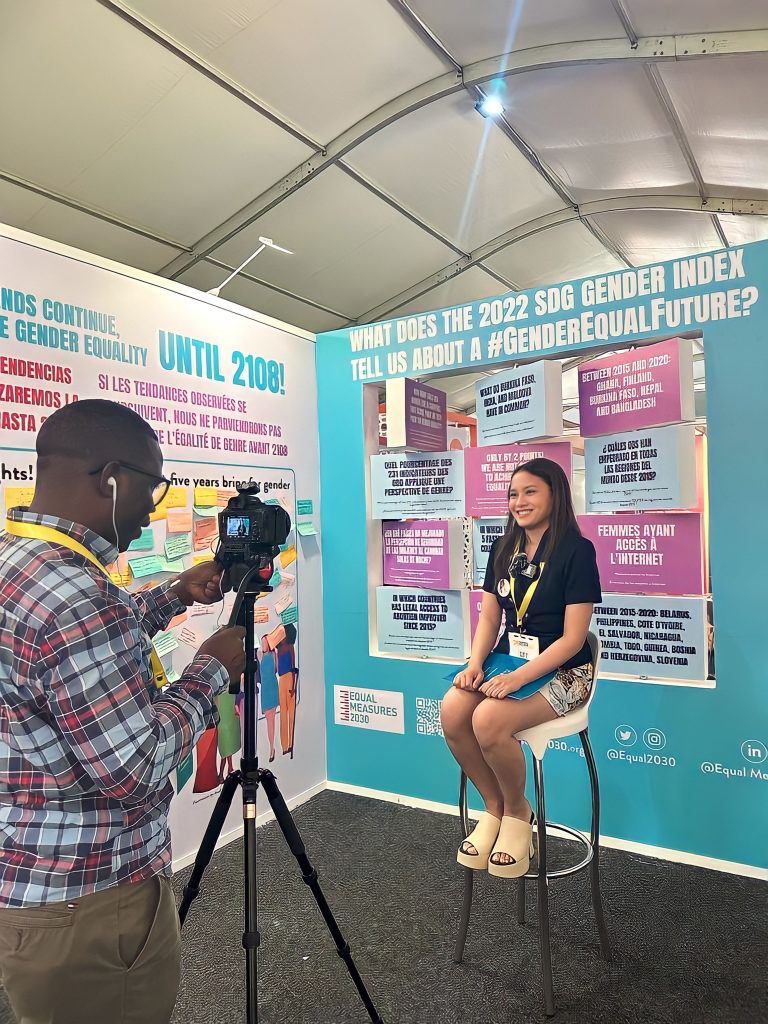
- Laying the groundwork: I did not step into advocacy as a specialty registrar in obstetrics and gynaecology today. Rather, it has been my personality for not being able to turn a blind eye to what I feel is an injustice since young. Fuelled by personal experiences, I became determined to equalise educational opportunities for Malaysian youth in medical school, which led me to establish The Kalsom Movement. What started as a small student project grew into a youth education charity in Malaysia, where I honed my leadership and project management skills while learning how to advocate effectively to governing and grant-awarding bodies. At that time, many people thought I was wasting time and not focussing on my medical degree. I never set out to win accolades for voluntary work, however I found myself a finalist for the 2015 Queen’s Young Leaders Award, earning me the Associate Fellowship of the Royal Commonwealth Society. Above of all, there is a lot of love in every work that I do. However, recognition can open doors, offering valuable connections and opportunities to further advance your mission.
- Get involved in extracurricular activities: On that note, I would encourage medical students to look beyond their textbooks and academic achievements. While excelling in your studies is important, true growth comes from immersing yourself in societies, clubs, and causes that resonate with you – not just to fulfil a curriculum requirement, but to build skills that will shape your future career and life. Use these platforms to build leadership skills, network, and explore areas of interest that align with your passions. Jack Ma once advised his son: “You don’t need to be in the top three in your class; being in the middle is fine, as long as your grades aren’t too bad. Only this kind of person has enough free time to learn other skills.” I struggle with this concept myself, having been raised in a culture that glorifies perfect grades (my own 10As and 1B in my Malaysian GCSEs was not good enough). This is something I am still unlearning – both for myself and in the expectations I place on those around me. Looking back, I see that I started my journey 20 years ago, not today. But as the Chinese saying goes, “The best time to plant a tree was 20 years ago, the second best time is now.” So look around you – how can you make a difference in your community?
- Building your unique expertise: But of course, passion alone is not enough – expertise is essential. Undoubtedly, my academic qualifications and medical expertise lend both credibility and weight to the work I publish and the words I speak. Advocacy without knowledge is just noise; depth and substance give it lasting impact. Reflecting on my medical career now, I am often pressured to choose between my surgical, research, or advocacy career. To which, I would say, “Advocacy is open to all, but few understand the day-to-day realities of clinical care or the precision required in surgery. And while every ObGyn can operate, only a select few excel equally in research and advocacy.“ So invest in what sets you apart. That said, I have my absolute respect for doctors who only pursue clinical work because they are able to put in their 110% into developing their surgical skills (unfortunately, my brain does not operate on solely doing one thing). Not everyone needs to do research or advocacy. Both purely ObGyns and clinical academics play a vital role in the system. Juggling three roles means constantly balancing expectations – pleasing some while inevitably disappointing others.
- The value of cultural capital: Over the years, I have taken on numerous voluntary leadership roles across various committees, and am often met with the question: why? While financial capital undoubtedly accelerates a cause, cultural capital is just as vital. Sometimes, this means working for free to build momentum, forge meaningful connections, and amplify your message. I did not enter the end FGM/C advocacy space expecting financial gain or leveraging prior connections – I simply saw a need and acted. I acknowledge that the ability to do so is a privilege, and everyone has their own limits – how much you are willing to give without financial return is a decision only you can make. My motivation, however, has always been shaped by something deeper – perhaps the legacy of my late great-granduncle, to whom I was very close, whose global philanthropic endeavours continue to inspire me. He showed me that true philanthropy thrives in quiet acts of kindness, without the need for fanfare. Sometimes, advocacy does not have to be loud. Yet, I grapple with my own privilege, juxtaposed against my own personal experience of hardship. I constantly fear becoming detached from the lived realities of those I wish to serve. It is a delicate balance – one that requires continuous reflection, humility, and, above all, a willingness to listen more than I speak.
- Your perceived disadvantage may be your greatest strength: This brings me to my final point: do not envy privilege. What you perceive as a lack of privilege could, in reality, be your greatest strength. Any gap in opportunity is an invitation to create something of your own – to carve out your path, define your success, and build something meaningful. Stop listening to negativity, and start focussing on what you can do now. If you have a great idea, start now. Even the smallest action can make a significant difference. Start small, whether it is hosting a discussion, sharing information on social media, or volunteering with an organisation. Small, consistent actions build momentum over time.
My End FGM/C Advocacy
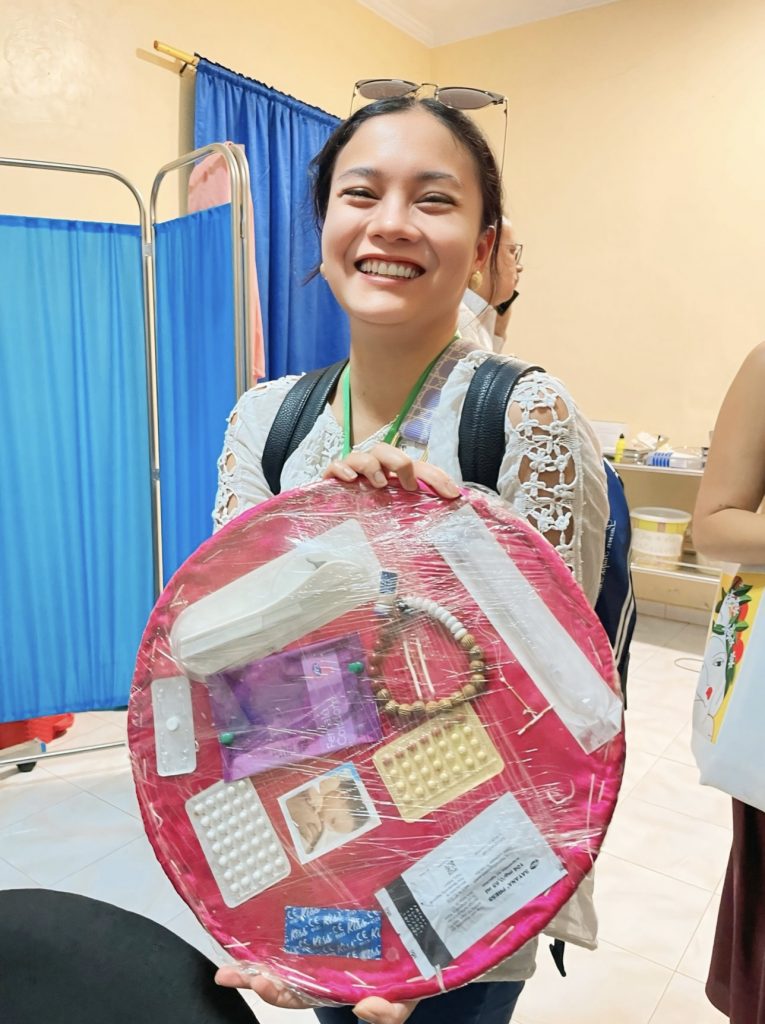
To be honest, I had no idea where my end FGM/C advocacy would take me. Often, it is indecision that hinders progress, while taking even a single step can illuminate the path forward. If it is the wrong decision, it becomes a lesson – guiding you forward with greater wisdom.
(Image: During the 2024 International Planned Parenthood Arab World Region Elimination of Female Genital Mutilation Centre of Excellence’s Experts Committee Member Annual Meeting, Nouakchott, Mauritania – holding an array of different forms of contraception.)
I began my advocacy in ending FGM/C by focussing on medical education after reading a publication on its medicalisation by Professor Rashid in 2020. Though I had never met him until this year in May 2025, I reached out through ResearchGate, arranged a meeting, and sought his insights. Therefore, do not hesitate to reach out to experts in the field you are passionate about. Then, knowing that most doctors were not using LinkedIn at the time, I turned to my Instagram contacts and recruited interested colleagues. Four years down the line, the Malaysian Doctors for Women & Children had produced four advocacy toolkits on FGM/C in Malaysia, spoken at high-level meetings and UN platforms, and influenced medical professional bodies to take a bold stance in ending FGM/C. Of course, the past four years have been anything but smooth sailing. Advocacy requires persistence and a willingness to learn – whether from mentors, peers, or personal experience. Like medicine, it demands lifelong learning, adaptation, and the ability to listen and adjust your approach. The path to creating change is often slow, requiring sustained effort. Set both short- and long-term goals, and regularly assess your progress to stay motivated.
Perhaps it was the foundation I had laid years ago that gave me the confidence – and the conviction – to start my own non-profit and take full ownership of it. Of course, I am deeply grateful to my mentors for their invaluable support along the way.
So, what’s stopping you from starting today?
Related posts:
- Top 10 Life and Career Hacks
- How to Feel Comfortable Disappointing Everyone
- The Heart of Success: Why Kindness Matters
- 4 Things I Learnt from My Burnout
- Green Templeton College Alumni Graduation Speech July 2024
- Breathless and Living My Wildest Dreams
- Building Resilience: Top 3 Tips for Success
- Building Resilience: Dealing with Grief and Failure for So-Called Type A Personalities
Like what you read? Subscribe to my blog.
About the Author: Hannah Nazri
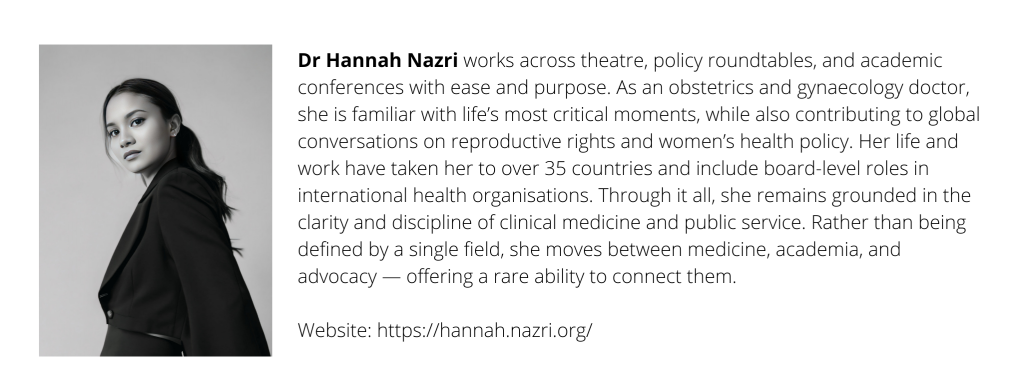
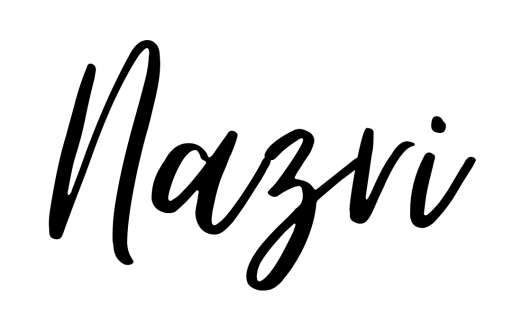
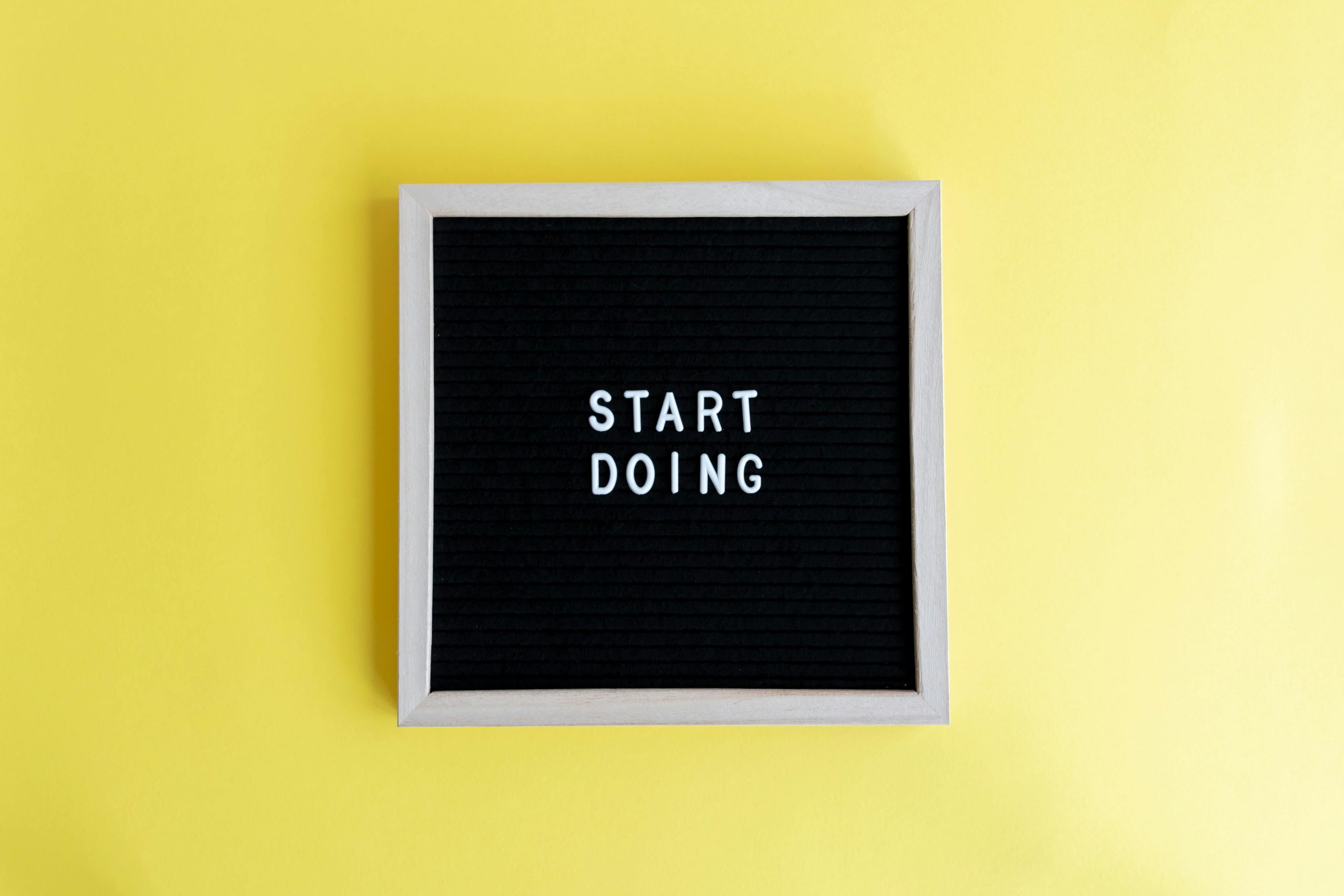
Beauty with brains! 🧠
Thank you – I hope you find this article useful.